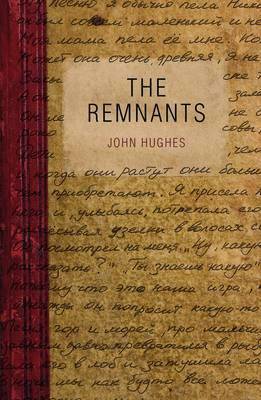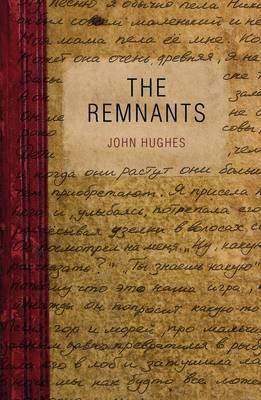
Bedankt voor het vertrouwen het afgelopen jaar! Om jou te bedanken bieden we GRATIS verzending (in België) aan op alles gedurende de hele maand januari.
- Afhalen na 1 uur in een winkel met voorraad
- In januari gratis thuislevering in België
- Ruim aanbod met 7 miljoen producten
Bedankt voor het vertrouwen het afgelopen jaar! Om jou te bedanken bieden we GRATIS verzending (in België) aan op alles gedurende de hele maand januari.
- Afhalen na 1 uur in een winkel met voorraad
- In januari gratis thuislevering in België
- Ruim aanbod met 7 miljoen producten
Zoeken
Omschrijving
The Remnants is a novel about legacy and influence. The central story deals with exile, memory, and loss, as well as a son's terrible desire to exorcise the past and recreate himself. A manuscript written by an Australian art historian is discovered by his son after the father's death. Claiming to have discovered a series of lost paintings by Piero della Francesca in the small Tuscan city of Arezzo, the father's manuscript moves between Renaissance Italy and post-Revolutionary Russia. At its core is the relationship the father has with an ageing Russian emigre, a woman who claims to have nursed the poet, Osip Mandelstam, in his final days. She is haunted by the ghost of her murdered son and the traumas she experiences before escaping Russia at the beginning of World War II. This central story is mediated by the son's commentary. He makes his own journey to Italy, which opens up Australia (and his past) for him in the form of a journey he took with his father to the Simpson Desert, 30 years before. With three stories tightly interwoven, this deeply philosophical novel is about translations between languages and cultures, and ultimately, the translation of the father into the son.
Specificaties
Betrokkenen
- Auteur(s):
- Uitgeverij:
Inhoud
- Aantal bladzijden:
- 294
- Taal:
- Engels
Eigenschappen
- Productcode (EAN):
- 9781742583327
- Verschijningsdatum:
- 15/06/2012
- Uitvoering:
- Paperback
- Formaat:
- Trade paperback (VS)
- Afmetingen:
- 152 mm x 231 mm
- Gewicht:
- 362 g

Alleen bij Standaard Boekhandel
+ 101 punten op je klantenkaart van Standaard Boekhandel
Beoordelingen
We publiceren alleen reviews die voldoen aan de voorwaarden voor reviews. Bekijk onze voorwaarden voor reviews.









